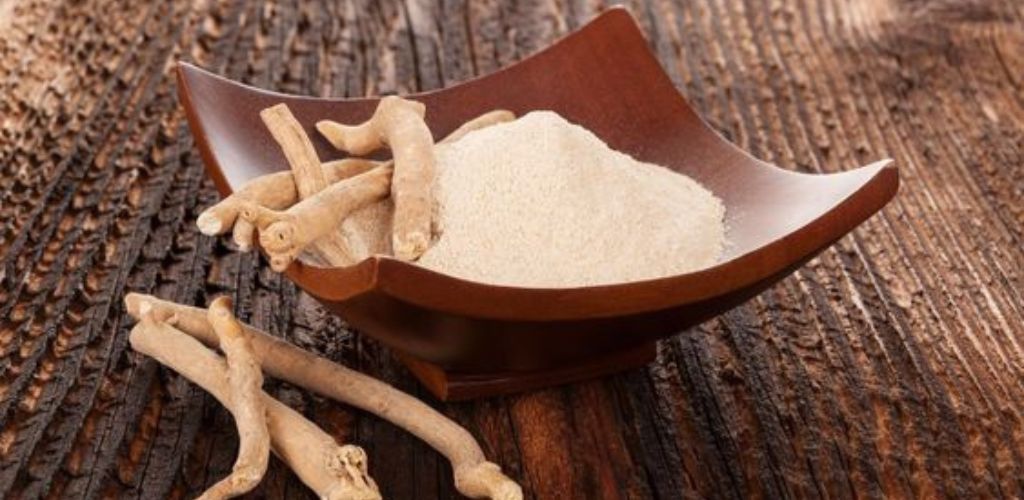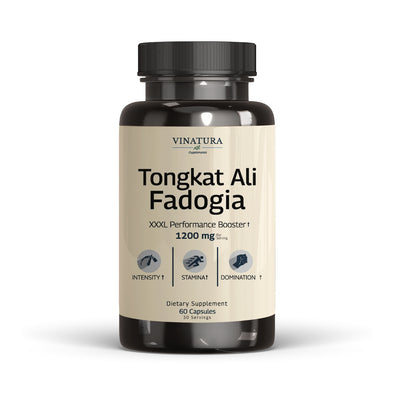
How Long Does Ashwagandha Take To Work?
Ashwagandha, a revered herb in traditional Indian medicine, is often sought for its potential health benefits in managing stress, anxiety, and more. One commonly asked question is, "How long does Ashwagandha take to work?" This document will explore the factors influencing Ashwagandha's effectiveness and the time required to observe results for various health concerns.
Before exploring further, please read the disclaimer located at the end of this webpage.
What Are Ashwagandha Effect Signs?

Short Term Effects
The short-term effects of Ashwagandha are remarkable. Although Ashwagandha begins to show its effects after at least four weeks of use typically, Ashwagandha's short-term effects can be observed in certain situations:
Ashwagandha has effects on pain management. Studies involving healthy volunteers who were administered 1000mg of Ashwagandha revealed noticeable pain relief within three hours of supplementation.
This was significantly apparent in scenarios involving heat and pressure exposure. The results indicated increased pain threshold force and time and greater tolerance force and time [6,7].
Aside from the substantial reduction in pain and the significant boost in cognitive function, individuals may also experience reduced stress and anxiety levels within the first two weeks of supplementation.
In a trial with 20 healthy male participants, supplementing with 1000mg of Ashwagandha extract daily, split into two doses of 500mg each, significantly improved cognitive function and overall mental well-being [8].
Long-Term Effects
The long-term benefits of Ashwagandha typically become apparent after consistent use for at least four weeks.
While the time for Ashwagandha to take effect can vary, its prolonged use is often associated with overall improvements in body health, particularly in areas such as anxiety, stress, testosterone levels, libido, sleep quality and hypothyroidism.
Learn more:
- Does Ashwagandha Make You Sleepy? Ashwagandha Dosage For Sleep
- Does Ashwagandha Make You Emotionless? Science Viewpoints
How Does Ashwagandha Work For Health?

Ashwagandha exerts its health-promoting effects through various mechanisms.
It interacts with the endocrine nervous system as an adaptogenic herb, supporting hormone balance. This interaction improves mental and brain health and enhances sleep quality [11].
Furthermore, it enhances Ojas, a vital concept in Ayurvedic medicine representing the body's essential energy source and the core of happiness and contentment. This enhancement strengthens the immune system, offering a significant defense against disease [11].
Ashwagandha also contributes to blood circulation, boosting circulation, and stabilizing blood sugar levels. These actions help maintain optimal heart health and enhance overall physical well-being [11].
Lastly, it is known to lower cortisol levels in the body, a hormone produced in response to stress. By reducing cortisol, Ashwagandha significantly alleviates stress and anxiety levels [11].
Thus, whether viewed from a mental or physical health perspective, Ashwagandha's mechanism is crucial in promoting overall well-being.
How Long Does Ashwagandha Take To Work?
How Long Does Ashwagandha Take To Work For Stress And Anxiety?

Ashwagandha's effectiveness in managing stress and anxiety manifests over time, with most trials suggesting at least 4-6 weeks for significant results.
In a notable study with 60 participants supplementing with 240mg of Ashwagandha extract daily, cortisol and DHEA levels were reduced, indicating improved stress and anxiety conditions [5].
As such, while some individuals may start noticing reduced anxiety levels within the first two weeks, others might need to maintain consistent supplementation for a couple of months.
How Long Does Ashwagandha Take To Work For Testosterone?

Ashwagandha's impact on testosterone levels does not occur immediately and requires sustained use.
Testosterone levels increased gradually in a 60-day trial, with males receiving the exact dosage over an extended period [5, 10].
It's important to note that these effects may differ between individuals and genders. In the same study, females did not experience a rise in testosterone levels [5].
Therefore, while Ashwagandha has the potential to enhance testosterone, the time it takes to have an effect greatly depends on the individual's biological response and consistent use.
How Long Does Ashwagandha Take To Work For Libido?

In a study of 50 men with low sex drive, daily supplementation of 600mg of Ashwagandha for eight weeks resulted in significant improvements in sexual satisfaction [1].
Research on women is limited, but a trial using a similar dosage and duration showed the herb's potential to enhance female sexual function [3].
Therefore, Ashwagandha's impact on libido typically becomes noticeable after 6-8 weeks of regular use.
How Long Does Ashwagandha Take To Work For Sleep?

Several studies confirm Ashwagandha's effectiveness in enhancing sleep quality. A synthesis of these studies recommends using Ashwagandha for at least eight weeks to maximize its sleep benefits [2].
Moreover, Ashwagandha's adaptogenic properties can help manage stress, a common factor hindering good sleep.
Therefore, while some people may start noticing improvements in sleep patterns within the first few weeks, optimal sleep benefits are usually achieved after two months of consistent usage.
How Long Does It Take Ashwagandha To Work For Hypothyroidism?

The use of Ashwagandha for managing hypothyroidism also requires a consistent regimen over some weeks.
A study involving participants aged 18 to 50 who were administered 600mg of Ashwagandha root extract daily for 8 weeks showed potential benefits in normalizing thyroid indices. These patients had subclinical hypothyroidism, a condition that is often a precursor to full-blown hypothyroidism [4, 9].
How Do You Know If Ashwagandha Takes to Work?
Ashwagandha's effectiveness can be assessed by monitoring changes in the specific health conditions it is being used to address. The improvements manifest differently depending on the individual and the purpose of the supplementation.
For instance, one might observe a decrease in stress and anxiety levels or an enhancement in sleep quality and cognitive function.
For tracking the changes in testosterone levels or libido, a medical test might be required. In the case of hypothyroidism, normalizing thyroid indices could indicate its effectiveness.
It's crucial to remember that the time frame for these changes can range between 2 to 8 weeks, depending on the condition and the individual's response to the supplement. Regular health check-ups and self-monitoring can provide valuable insights into the workings of Ashwagandha.
Factors That Impact the Effect Duration of Ashwagandha

A variety of factors can influence the duration it takes for Ashwagandha to exert its effects:
Individual Body Conditions
The individual's age, physical condition, and mental health status can significantly impact the duration of Ashwagandha to work. For instance, a young, physically active person may experience effects faster than an older individual with less physical activity.
Individual Biochemical Response
People's bodies respond differently to holistic remedies like Ashwagandha. Some may notice changes within the first few weeks, while others might take longer.
Dosage
The amount of Ashwagandha consumed also influences how quickly the supplement works. While the recommended daily dosage is 100-200mg, starting with a smaller dose and gradually increasing it may allow the body to adjust more efficiently, potentially leading to quicker results.
Consistency
Regular and consistent usage is critical. Ashwagandha generally takes time to exhibit noticeable effects, and skipping doses or irregular consumption might delay these effects.
Timing of Supplementation
The timing of supplementation can affect how quickly Ashwagandha works. For some health conditions, such as stress and anxiety, supplementing in the morning might yield more beneficial effects. Conversely, taking the supplement in the evening may be more helpful in promoting sleep. However, the timing may only sometimes be a critical factor.
Quality of the Supplement
The quality of the Ashwagandha supplement can also significantly impact its effectiveness and how quickly it works. Always check the expiration date and inspect the supplement for any signs of mold or degradation before use.
Form of Supplementation
Ashwagandha is available in various forms, including capsules, tablets, powder, and herbal tea. Each form may have different concentrations of Ashwagandha extract, which can influence how quickly and effectively it works. For instance, capsules and tablets are typically more concentrated and may work faster, while tea and powder forms may take longer to show effects.
Conclusion
Ashwagandha is a versatile supplement that has a range of potential benefits for health conditions such as stress, anxiety, libido, sleep quality, and hypothyroidism. The time it takes for Ashwagandha to work can vary considerably based on factors like individual body conditions, dosage, consistency of use, and supplementation. It generally takes between 4 to 8 weeks to observe the benefits. Thus, patience, regularity, and mindful observation of one's body response are essential to practical usage.
References
- [1] Chauhan, S., Srivastava, M. K., & Pathak, A. K. (2022). Effect of standardized root extract of ashwagandha ( Withania somnifera ) on well‐being and sexual performance in adult males: A randomized controlled trial. Health Science Reports, 5(4). https://doi.org/10.1002/hsr2.741
- [2] Cheah, K. L., Norhayati, M. N., Husniati Yaacob, L., & Abdul Rahman, R. (2021). Effect of Ashwagandha (Withania somnifera) extract on sleep: A systematic review and meta-analysis. PLOS ONE, 16(9), e0257843. https://doi.org/10.1371/journal.pone.0257843
- [3] Dongre, S., Langade, D., & Bhattacharyya, S. (2015, October 4). Efficacy and Safety of Ashwagandha (Withania somnifera) Root Extract in Improving Sexual Function in Women: A Pilot Study. BioMed Research International. https://www.hindawi.com/journals/bmri/2015/284154/
- [4] Gannon, J. M., Forrest, P. E., & Roy Chengappa, K. N. (2014). Subtle changes in thyroid indices during a placebo-controlled study of an extract of Withania somnifera in persons with bipolar disorder. Journal of Ayurveda and Integrative Medicine, 5(4), 241–245. https://doi.org/10.4103/0975-9476.146566
- [5] Lopresti, A. L., Smith, S. J., Malvi, H., & Kodgule, R. (2019). An investigation into the stress-relieving and pharmacological actions of an ashwagandha (Withania somnifera) extract: A randomized, double-blind, placebo-controlled study. Medicine, 98(37), e17186. https://doi.org/10.1097/MD.0000000000017186
- [6] Murthy, M. N. K., Gundagani, S., Nutalapati, C., & Pingali, U. (2019). Evaluation of Analgesic Activity of Standardised Aqueous Extract of Withania somnifera in Healthy Human Volunteers using Mechanical Pain Model. JOURNAL of CLINICAL and DIAGNOSTIC RESEARCH. https://doi.org/10.7860/jcdr/2019/37590.12441
- [7] Nalini, P., Manjunath, K., SunilKumarReddy, K., & Usharani, P. (2013). Evaluation of the analgesic activity of standardized aqueous extract of Withania somnifera in healthy human volunteers using Hot Air Pain Model. Semantic Scholar. https://www.semanticscholar.org/paper/Evaluation-of-the-analgesic-activity-of-aqueous-of-Nalini-Manjunath/598e7654bbdf771562f9b9ab4cd4a1a6bfcd0d86
- [8] Pingali, U., Pilli, R., & Fatima, N. (2014). Effect of standardized aqueous extract of Withania somniferaon tests of cognitive and psychomotor performance in healthy human participants. Pharmacognosy Research, 6(1), 12. https://doi.org/10.4103/0974-8490.122912
- [9] Sharma, A. K., Basu, I., & Singh, S. (2018). Efficacy and Safety of Ashwagandha Root Extract in Subclinical Hypothyroid Patients: A Double-Blind, Randomized Placebo-Controlled Trial. Journal of Alternative and Complementary Medicine (New York, N.Y.), 24(3), 243–248. https://doi.org/10.1089/acm.2017.0183
- [10] Smith, S. J., Lopresti, A. L., Teo, S. Y. M., & Fairchild, T. J. (2020). Examining the Effects of Herbs on Testosterone Concentrations in Men: A Systematic Review. Advances in Nutrition, 12(3). https://doi.org/10.1093/advances/nmaa134
- [11] Umadevi, M., Rajeswari, R., Sharmila Rahale, C., Selvavenkadesh, S., Pushpa, R., Sampath Kumar, K., & Bhowmik, D. (2012). THE PHARMA INNOVATION Traditional And Medicinal Uses of Withania Somnifera. 1(9).
Author

Product Disclaimer
Including an ingredient or study does not evaluate, endorse, or recommend any Vinatura product or any third-party product. Some ingredients discussed may not be used in any Vinatura product.
The content of the articles has not been evaluated by the Food and Drug Administration (FDA) and is not intended to promote or endorse any specific product. Any products sold on this website are not intended to diagnose, treat, cure, or prevent any disease.
Opinions and Endorsements
Any claims, statements, or opinions expressed in the articles are those of the author(s) and do not necessarily reflect the views or opinions of the manufacturers of the dietary supplement products. The products sold on this website are separate from the content of the articles and are not directly endorsed or associated with the information presented here.
Liability Disclaimer
The author(s) of the articles, website, and manufacturers of the dietary supplement products do not assume any liability for any potential consequences arising from the use of the information provided in the articles. Ingredient effects, dosages, and safety vary by individual, formulation, and context; some ingredients interact with medications or may be unsuitable during pregnancy or lactation. It is recommended that individuals consult with a qualified healthcare professional before making any dietary or lifestyle changes, including the use of dietary supplements.
Product Usage
Please refer to the product labels and packaging for specific usage instructions and guidelines for the dietary supplement products sold on this website.
Customer Support
For any concerns or questions regarding the dietary supplement products, please contact our customer support team, who will be more than happy to assist you.






Leave a Comment
Be the first to comment.
What do you think?